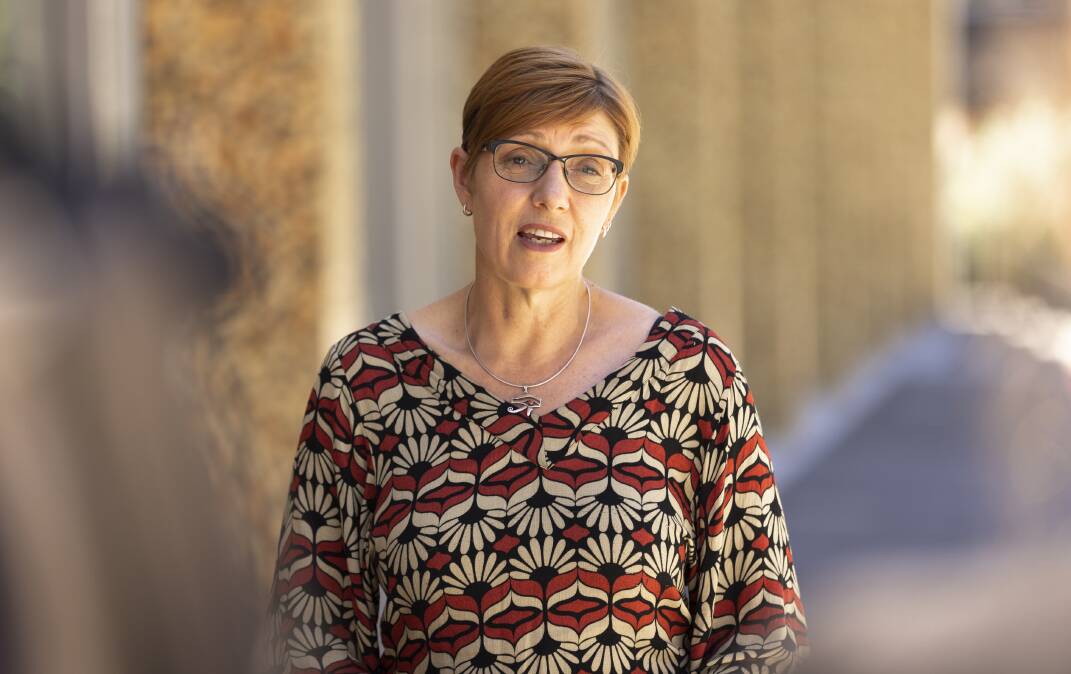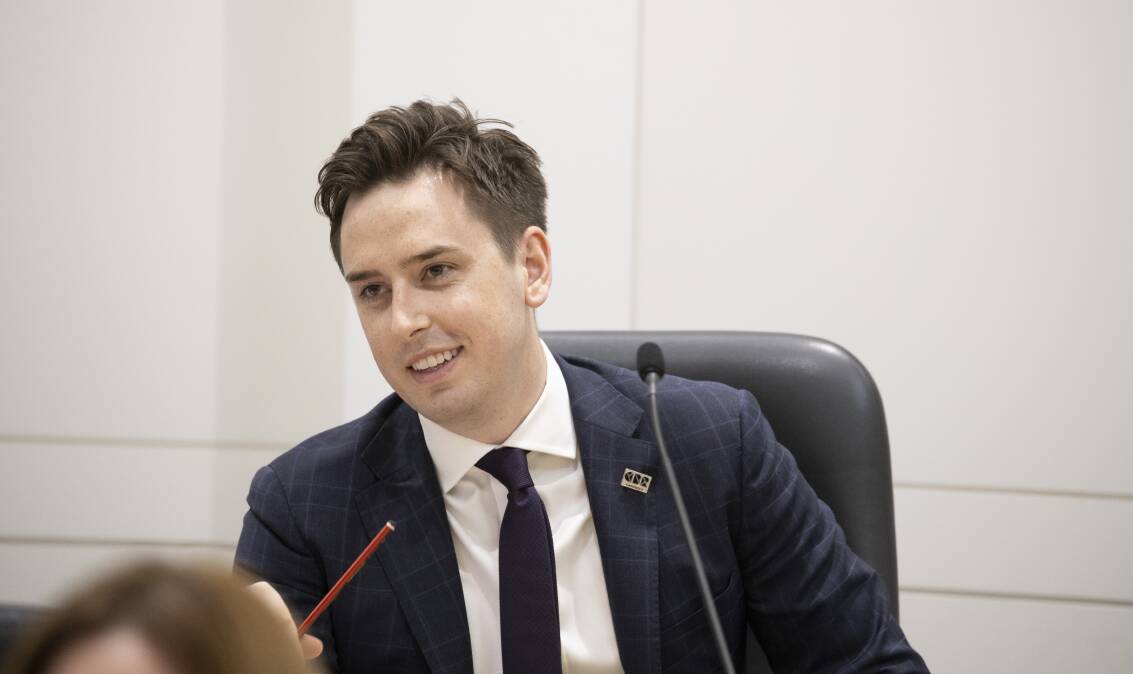
The ACT government will move ahead with reforms to decriminalise small amounts of illicit drugs, including ice, cocaine and heroin, with Health Minister Rachel Stephen-Smith saying it was the "next logical step" in the government's drug harm minimisation agenda.
Ms Stephen-Smith told the Assembly that a proposed bill from Labor backbencher Michael Pettersson represented a "coherent policy response to the ACT government's policy aim of harm minimisation".
But the Canberra Liberals have continued to voice opposition to the bill with opposition spokesman for police Jeremy Hanson arguing that it was going to result in poor outcomes, echoing earlier concerns from ACT Policing it could lead to an increase in drug dealing.
Under Mr Pettersson's bill, there would be a possession limit of 2 grams for cocaine, ice and heroin and 0.5 for ecstasy. But Ms Stephen-Smith said the government would propose amendments to the bill, including replacing the language of "possession limits" to "small quantity" and new thresholds would be introduced.
The bill had proposed that people caught with drugs up to the possession limit would be given a $100 fine as opposed to going through the justice system. But Ms Stephen-Smith said the government would amend this so that police could choose to refer a person to a drug diversion program instead.
"The proposed government amendments will ensure the potential for diversion away from the criminal justice system is maximised, with the Illicit drug diversion program to be available as a health-based alternative," she told the Assembly.
However, the head of a drug harm minimisation organisation has aired concerns that the possibility of a fine ran the risk of "being worse than the status quo".
Unharm chief executive Will Tregoning said police already had the capacity to refer people to diversion programs and this was often used. He said introducing fines could actually result in police targeting more people for drug possession.
"[It's been acknowledged] that police already have the capacity to divert people out of the criminal justice system, which begs the question, why add fines into the mix?", Dr Tregoning said.
"Given the commitment to reduce negative and harmful interactions between the criminal justice system and members of the public this is precisely the wrong approach.
"The irony is that almost no one in the ACT gets arrested for drug possession offences right now, they are typically only charged in combination with other offences."
However, Ms Stephen-Smith said this gave police a range of options to respond to people who are in possession of drugs and she said that some people would want to pay a fine rather than going through a diversionary program.
"This is basically expanding the opportunities for police to respond in the most appropriate way," she said.
"We've also heard from people in the sector [that some] would rather pay a fine and move on with their lives rather than be sent to a drug diversion program ... they're addicted to drugs and that is part of their lives and attending a seminar on drug diversion is not going to be useful for them."
The ACT's police voiced concerns around the possession limits for drugs, warning it could enable drug trafficking in its submission to an inquiry into the bill. Police did not issue a statement on the agreement to the bill on Thursday but have maintained the same position outlined in the inquiry.
Ms Stephen-Smith said the government would amend the thresholds proposed in the bill and would introduce the concept of a small amount of drugs.
The proposal was also strongly condemned by Australian Federal Police Commissioner, Reece Kershaw who said it could lead to "narco-tourism".

Mr Hanson said he felt the government's position in agreeing to the bill actually signalled to dealers and users that taking drugs was OK. He said the current laws were the right balance as police already undertook a diversionary approach at the moment.
"It's going to create a whole bunch of really bad outcomes for society, but also for drug users, you're going to see more drug users," he said.
"It's going make the job very difficult job that our police have ... it's going to make their job a lot harder."
People are often only charged for possessing small amounts of drugs if it is in conjunction with another offence, for example an armed robber is found to also be in possession of drugs.
Ms Stephen-Smith said the government had also proposed a 12-month implementation period for the new laws to allow for appropriate police training and review of the administrative arrangement, including how the drug diversion program would work.
"This will also allow time for a focus on messaging in relation to the government's expectations around the bill's application developed with ACT Policing, other experts and those with lived experience, and for the ACT community to build awareness about what the changes mean for them," she said.
The bill will also be reviewed after three years.
Ms Stephen-Smith said the bill formed part of the government's harm minimisation approach to drugs.
"We know that criminalising drug users does not reduce drug use, it only creates further harm for some of the most vulnerable in our community, it doesn't keep the community safe," she said.
"We also want to be very clear that we're not sending a message that drug use is safe and we're certainly going to continue to address trafficking and dealing of drugs with ACT Policing."
Mr Pettersson welcomed the government's response, saying it had vindicated what drug law experts had been saying for many years. He was also responsible for the move which legalised cannabis possession under ACT laws in 2020.
"Treating drug use as a public health problem is the best way we can reduce the harms that exists from the drugs that already exist in our community," he said.
The ACT Council of Social Service also welcomed the government's response, with acting chief executive Adam Poulter calling the move a "unique opportunity for the ACT".
"Moving toward decriminalising a range of drugs for personal use will have enormous positive impact, especially for some of the most disadvantaged and marginalised people in the territory," he said.
A Legislative Assembly select committee inquiry into Mr Pettersson's proposed bill recommended the bill be passed last year with amendments, which is what the ACT government has agreed to.
However, Canberra Liberals committee chair Peter Cain rejected the recommendations in a dissenting report, saying the bill failed to consider the risks of decriminalisation.
We've made it a whole lot easier for you to have your say. Our new comment platform requires only one log-in to access articles and to join the discussion on The Canberra Times website. Find out how to register so you can enjoy civil, friendly and engaging discussions. See our moderation policy here.







